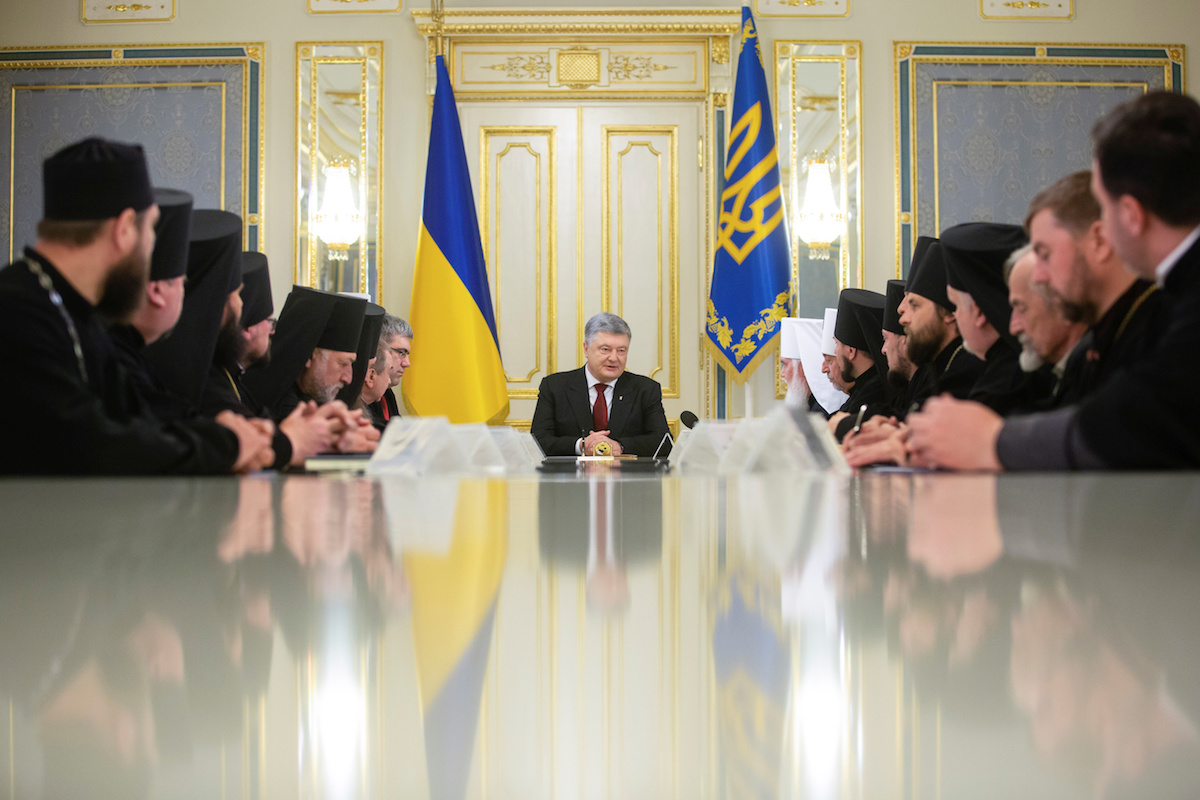A new way to pray: Ukraine seeks to unite churches and solve conflicts between Orthodox Christians

Based on an article from Ukraine’s Hromadske TV
A process of unifying the local Orthodox churches has started in Ukraine. If it proves successful, then the independent Ukrainian Orthodox Church will be officially recognized for the first time ever.
This article provides the details of the project and shows the Ukrainian believers’ attitude towards it.
Why has the Ukrainian Church failed to gain an autocephalous status so far?
The reason is that there are actually three Orthodox Christian Churches operating in Ukraine. One of them belongs to the Kiev Patriarchate, another one to the Moscow Patriarchate, and there is also the Ukrainian Autocephalous Orthodox Church. There has been steady competition between the churches, with each of them regarding the others as being ‘inferior’ and struggling for dominance in the country’s rural regions from time to time.
When all this is considered, it’s almost impossible to register an independent Ukrainian Orthodox Church. For this to happen, it is necessary to establish a uniform local church. The matter concerns unification of all Orthodox Christians within a single structure that should be set up in the country and that should correspond to its administrative division and state borders.
How will the United Ukrainian Orthodox Church be formed?
The idea was put forward by the country’s president Petro Poroshenko.
First the hierarchs of the Ukrainian Orthodox churches are required to make an appeal expressing their readiness for unification.
The next step involves the president gaining the parliament’s support, and finally, the president has to request the Ecumenical Patriarch to sign a decree on the formation of a local church in Ukraine, thus granting it autocephalous status.
Ukraine has taken all the steps, and is now awaiting a decision.
Yaroslava Mishchenko, head of the group who thought up the idea of a united Local Church, believes that the independent church will be able to resolve conflicts within the congregations of the Kiev and Moscow Patriarchates.
She herself is a parishioner of the church which is affiliated with the Moscow Patriarchate.
“The local church will provide for a dialogue with the parishioner … it will help to build a single line for the parishioners to follow,” said Yaroslava Mishchenko.
‘For’ and ‘against’
The Ukrainian President’s idea was highly welcomed by two Ukrainian Orthodox Churches – the Church of the Kiev Patriarchate and the Ukrainian Autocephalous Orthodox Church.
However, the Moscow Patriarchate church didn’t support the idea. Nikolay Danilevich, an archpriest and a spokesman for the Moscow Patriarchate of the Ukrainian Orthodox Church assumed that the Ukrainian authorities raised this issue in order ‘to stay in power for the second term’.
As for the Ukrainian community, nearly 40% of the country’s population supported the idea of forming a united independent Ukrainian Orthodox Church.
Only 18% of the population opposed the idea, while 23% said they felt indifferent.
Until recently, the Church was leading in the ‘Ukrainians’ trust’ rating. However, the situation changed in 2017. Public opinion surveys showed that the majority of Ukrainians – 66.7% – trusted volunteer organizations, while 64.4% of the surveyed expressed confidence in the Church. The Ukrainian Armed Forces was ranked third at 57.3%.
Commentary
Alexander Vishnya, a sociologist, head of the Institute of Sociology of the Ukrainian Academy of Sciences believes that ‘Ukraine doesn’t realistically stand a chance to form a united Orthodox Church’. He stated that none of the presidents have managed to unite the Orthodoxy in Ukraine in over 26 years. The reason is always the same – there is constant resistance on part of the Moscow Patriarchate, which is influenced by Moscow.
Despite that, the Ukrainian leader is hopeful that the United Ukrainian Independent Church will be granted the Tomos of autocephaly (a special decree on formation of the local church) before the 1 030th anniversary of the Baptism of the Kievan Rus’ – which takes place in summer this year.



















